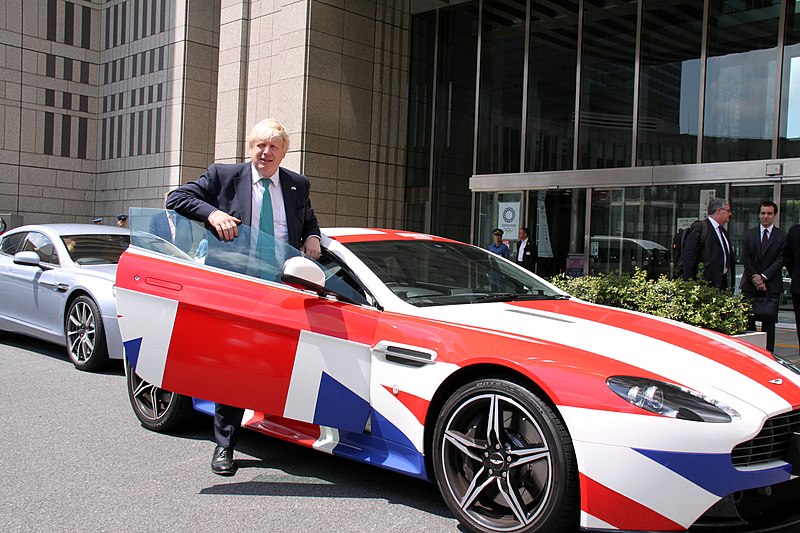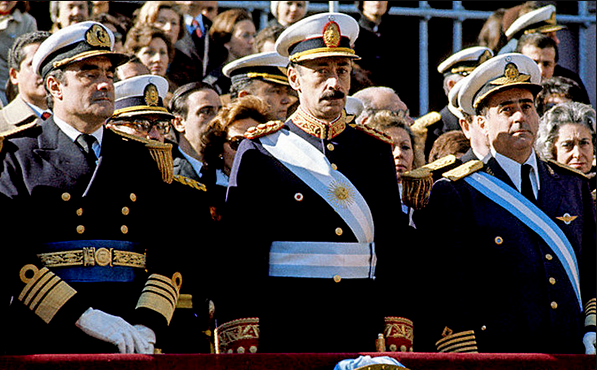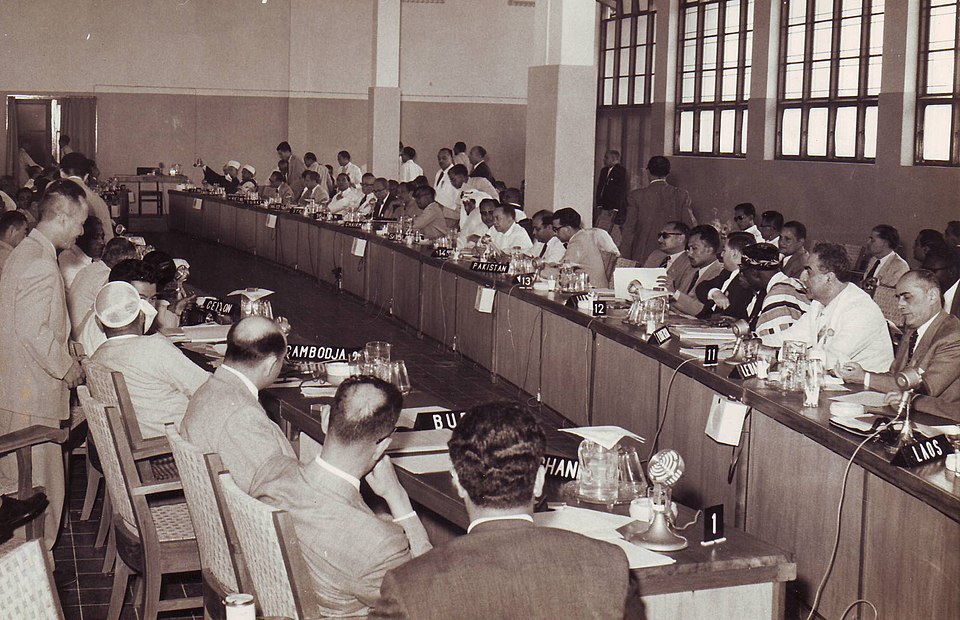I enjoyed reading Keith’s article Putting the Red back in Red, White, and Blue, which makes a number of important points. In order to effectively oppose capitalism, we need a vision of socialism based on love of democracy and of each other. Under neo-liberalism we are alienated and robbed of our sense of community. We need more solidarity and democracy as an antidote to the “runaway, politicized capitalism” so articulately described by Keith.
Unfortunately, I cannot agree with Keith’s central premise. I am most definitely not a patriot, and I see patriotism as standing in contradiction to my socialist internationalism.
Can the Left reclaim patriotism?
This is not a good time for the Left to try to reclaim patriotism. In the US, “patriots” stormed the White House wearing clothing which said that 6 million [Jewish Concentration Camp victims] were not enough. Meanwhile, in Great Britain, Labour leader Sir Keir Starmer is dragging his party to the right, attacking teaching unions for wanting safe working conditions and making Labour’s support for nuclear weapons “non-negotiable”. Each of his press conferences is now made with the backdrop of one, often several, union flags.
Now, I don’t think that this is the sort of patriotism that Keith endorses. His is probably more in line with the musician Billy Bragg, who in his book The Progressive Patriot wrote the following: “Defending our rights, fighting for greater accountability, fighting for social justice, standing up for the traditional value of fairness: these are the things which mark me out as a patriot.”[1]
Bragg bases his patriotism on English progressives “from the Peasants’ Revolt to the Diggers and the Levellers, from Captain Swing to Ned Ludd and the Suffragettes.” He goes on to cite “Tom Paine and the Tolpuddle Martyrs … the Ragged-Trousered Philanthropists and the Battle of Cable Street.”[2] That is an impressive list.
I am sure that Keith can produce a similar list of worthy US Americans, from Frederick Douglass to Emma Goldman, from the 1930s Flint strikers to the Civil Rights marchers 30 years later, from Angela Davis to Tom Paine. Yes, Paine again. A man who was politically active in 3 countries (Paine was also a member of the France’s revolutionary National Convention) does not lend himself easily to being a symbol for one particular place.
Besides which, why should “standing up for the traditional value of fairness” be seen as a specifically British quality? Are Britons really more fair than Iranians or Iroquois? History does not seem to be on the side of people making such assertions.
What is national identity?
Many of the traditions assumed to be an essential part of a national identity are recent inventions. Hardt and Negri explain how the idea of nation played an important ideological role in the transition from feudalism to capitalism: “This uneasy structural relationship was stabilized by the national identity: a cultural, integrating identity, founded on a biological continuity of blood relations, a spatial continuity of territory, and linguistic commonality.”[3]
They note that for Rosa Luxemburg “nation means dictatorship and is thus profoundly incompatible with any attempt at democratic organization. Luxemburg recognized that national sovereignty and national mythologies effectively usurp the terrain of democratic organization by renewing the powers of territorial sovereignty and modernizing its project through the mobilization of an active community.”[4]
Marxist historian Eric Hobsbawm co-wrote an important book about the phenomenon of “invented tradition” – assumed national values which were mainly invented in the 19th and 20th Centuries. These traditions “tended to be quite unspecific and vague as to the nature of the values, rights, and obligations of the group membership they inculcate: ‘patriotism’, ‘loyalty’ ‘duty’, ‘playing the game’, ‘the school spirit’ and the like.”[5]
Hobsbawm notes elsewhere that the Dictionary of the Royal Spanish Academy “does not use the terminology of state, nation and language in its modern manner before its edition of 1884.”[6] Before that, nations as we understand them today did not exist. National borders are an artificial construct. So, Benedict Anderson calls nationalism a “fraternity that makes it possible, over the past two centuries, for so many millions of people, not so much to kill, as willingly to die for such limited imaginings.”[7] It is a tool used by the rich to make the poor fight and die in their wars.
When Keith says that “belonging in a shared project plays an enormous role in creating identity and sustainable contentment in individuals” I agree with him. The trouble is that the “shared project” with which most patriots are expected to identify is a recent invention, introduced to try to bind us to nascent capitalist countries.
Patriotism, Nationalism. What’s the Difference?
Some defenders of patriotism argue that it is fundamentally different to nationalism. George Orwell is often cited:
“By ‘patriotism’ I mean devotion to a particular place and a particular way of life, which one believes to be the best in the world but has no wish to force upon other people. Patriotism is of its nature defensive, both militarily and culturally. Nationalism, on the other hand, is inseparable from the desire for power. The abiding purpose of every nationalist is to secure more power and more prestige, not for himself but for the nation or other unit in which he has chosen to sink his own individuality.”[8]
It seems that, for Orwell, patriotism is felt by nice people and nationalism by nasty people. Nonetheless both are based on the idea that the random fact of where you happen to have been born is important. Keith himself calls patriotism “a sense of belonging derived from a shared and common experience of being citizens of a particular country.” Yet why should “my” country be any better or worse than anyone else’s?
It seems that Orwell just lucked out by being born in the one country which he believes to be the best in the world. Now he may not want to force this belief onto other people, but it is pure parochialism to assume that by an accident of birth, the piece of land upon you which were born is somehow superior to all others.
Not all nationalism is necessarily oppressive. In Catalonia and Palestine, Ireland and Scotland, in parts of Africa, Asia and Latin America, we have seen the emergence of movements which are both nationalist and progressive. After centuries of being denied to speak their own languages, of national oppression and enslavement, inhabitants of these countries share a common bond as the victims of imperialism.
We can argue which of these movements deserve the support of socialists on a case-to-case basis, but they are clearly not the same as racist White Supremacists who want to retain old repressive structures. In countries that have suffered from imperialism, fighting for national rights, for equality, often involves some sort of challenge to the status quo.
The bloody history of imperialism
There is no such case to be made for progressive nationalism in Keith’s home country, the USA, nor in mine, “Great” Britain. For centuries, British colonisers travelled the world, stealing natural resources and forcing the inhabitants into servitude. Ever wondered why so many geographical borders in Africa are straight lines? It has much to do with an event that ended 136 years ago this week. In the Berlin Conference of 1884-5, European powers carved up the continent between them and literally redrew the map.
Similar processes happened throughout what we now know as the “Global South”. At the end of the Second World War, with national liberation movements clamouring for independence, Britain did its best to hold on to what it could, and to divide the rest into competing factions. This led, among other things, to the bloody partition of India and other unnecessary massacres.
But British imperialism was on the wane. As the Twentieth Century developed, the USA took over Britain’s role as the world’s leading imperial power, and used force to enforce its global hegemony. Only this week, that nice Joe Biden bombed Syria in order to show the world who’s still boss.
I cannot conceive of a British or US-American nationalism (or patriotism, call it what you will) that manages to extricate itself from the crimes of imperialism – from the first Concentration Camps, erected by the British in South Africa, via slavery, initiated by White Europeans and implemented with gusto in the States, to centuries of murderous wars.
“Progressive patriots” have a problem. If you want to be proud of a country, you have to take all or nothing. You can’t celebrate the “British values” of the suffragettes and ignore the slave trade. I’m not quite sure how Keith can laud US democracy without acknowledging that until very recently only white men had voting rights. We can be proud that Rosa Luxemburg came from Germany (well, German-occupied Poland to be precise), but if “German culture” is to include Luxemburg, it must also accept responsibility for Hitler and the Holocaust.
Class not Nation
There is a way out of this dilemma, and it is to reject the relatively new phenomenon of nations. It should not matter that I was born on one side of an artificial border, and you were born on the other. Our interests are united, not by geographical accidents, but by class.
There are some famous quotations that are so familiar that we rarely consider what they really mean. Take the opening line of the main part of the Communist Manifesto: “the history of all hitherto existing society is the history of class struggles.”[9] The dynamic in history – which causes both political progress and reaction, is not the clash between imperialist nations, but the struggle between the working class and the ruling class.
Capitalism divides us between the few who control the means of production and own almost all of the wealth, and the rest of us. To maintain the privilege of the few, it encourages divisions which turn us against each other. Racism and sexism are obvious examples, but so too is patriotism. I have no common interests with the corrupt Boris Johnson, the murderous racist Winston Churchill or our parasitical royal family. I have much more in common with people throughout the world who are actively fighting them and their legacy.
Keith may be able to consider his passport a “proud possession”, but I resent the implications of this pride. Of course, it is beneficial to me that I have the privilege of carrying not one but two passports – one British, one German – when so many refugees and sans papiers are denied basic human rights because they can’t produce theirs. This should in no way bind me to those same countries which deny rights to people who do not possess the correct documents.
It is not an accident that many of the people who feel it most difficult to sign onto patriotism are recent migrants – be they French citizens from Northern African families, Britons from the Indian subcontinent or German Turks. They may now hold the passport of the country in which they live, but their families were the victims of white imperial politics. Many are still victims of racist attacks in the mother country. Why should they be expected to unconditionally identify with the country responsible for this repression and racism?
Why has patriotism become important?
The Left tends to cling onto hopes of patriotism when it is at its weakest. Jeremy Corbyn and Bernie Sanders have both experienced serious defeats, which has demoralised the mass movements that they both inspired. Socialists who were involved in these campaigns are licking their wounds and trying to find a way of recovering. Some are seeing patriotism as a possible way of reuniting our side.
The truth is that under capitalism we are all alienated and searching for life rafts which bring us a sense of belonging. I invest undue emotions in the future of local sports clubs (I draw the line at supporting England). My only real connection – apart from attending matches – is that they are based in the area where I grew up. Ultimately, my choice for supporting specific teams is not really rational, but neither does it hurt anyone, so it’s not really important.
Similarly, I have a pride in Berlin, where I now live. I am active in the Deutsche Wohnen & Co Enteignen campaign because I want to make the city better and more accountable to its residents. I am active in movements in Berlin and not Barcelona, because this is where I can be effective, but I expect similar localized militancy from everyone, wherever they live.
A lively socialist movement will include patriots who choose regional chauvinism over rampant neo-liberalist conformity. A recent example is in France where the members of the Yellow Vests movement were often motivated by a desire for a better France. We should welcome such people into our movement with open arms. At the same time, we should be clear that looking for a solution in patriotism is a false hope. Instead, we must reiterate the old slogans – workers of the world unite, for the many not the few, the workers united will never be defeated.
If we look for solutions which transcend class we run the permanent risk of ending up in an unholy alliance with our rulers and bosses. Concepts like patriotism have always been imposed from above. They never belonged to us in the first place, and ultimately they hinder rather than help our common international struggle. In contrast, let us build a socialism based on international solidarity.
Phil Butland is the joint speaker of the Berlin LINKE Internationals and a commissioning editor for theleftberlin.com. theleftberlin attempts to represent a range of discussion on the Left and we encourage our readers to be part of this debate. If you would like to respond to any articles that we publish, please contact us at theleftberlin@yahoo.com.
Footnotes
Thanks to Amanda Dillon, Mimi Howard, Carol McGuigan, John Mullen and Anna Southern for commenting on an earlier version of this text
1 Billy Bragg, The Progressive Patriot: A sense of belonging, Black Swan 2006, p350
2 Bragg, op cit. p14
3 Michael Hardt and Antonio Negri, Empire, Harvard University Press 2001, p95
4 Hardt and Negri, op cit, p97
5 Eric Hobsbawm, Inventing Traditions in Hobsbawm and Ranger, The Invention of Tradition, Cambridge University Press 1983, p10
6 E.J.Hobsbawm, Nations and Nationalism since 1780, Cambridge University Press 1990, p14
7 Benedict Anderson, Imagined Communities: Reflections on the Origin and Spread of Nationalism, Verso 1983, p7
8 George Orwell, Notes on Nationalism, in The Collected Essays, Journalism and Letters of George Orwell. Volume 3 As I Please, 1943-1945, Penguin 1968, p411
9 Karl Marx and Friedrich Engels, The Communist Manifesto, Penguin 1967, p79




